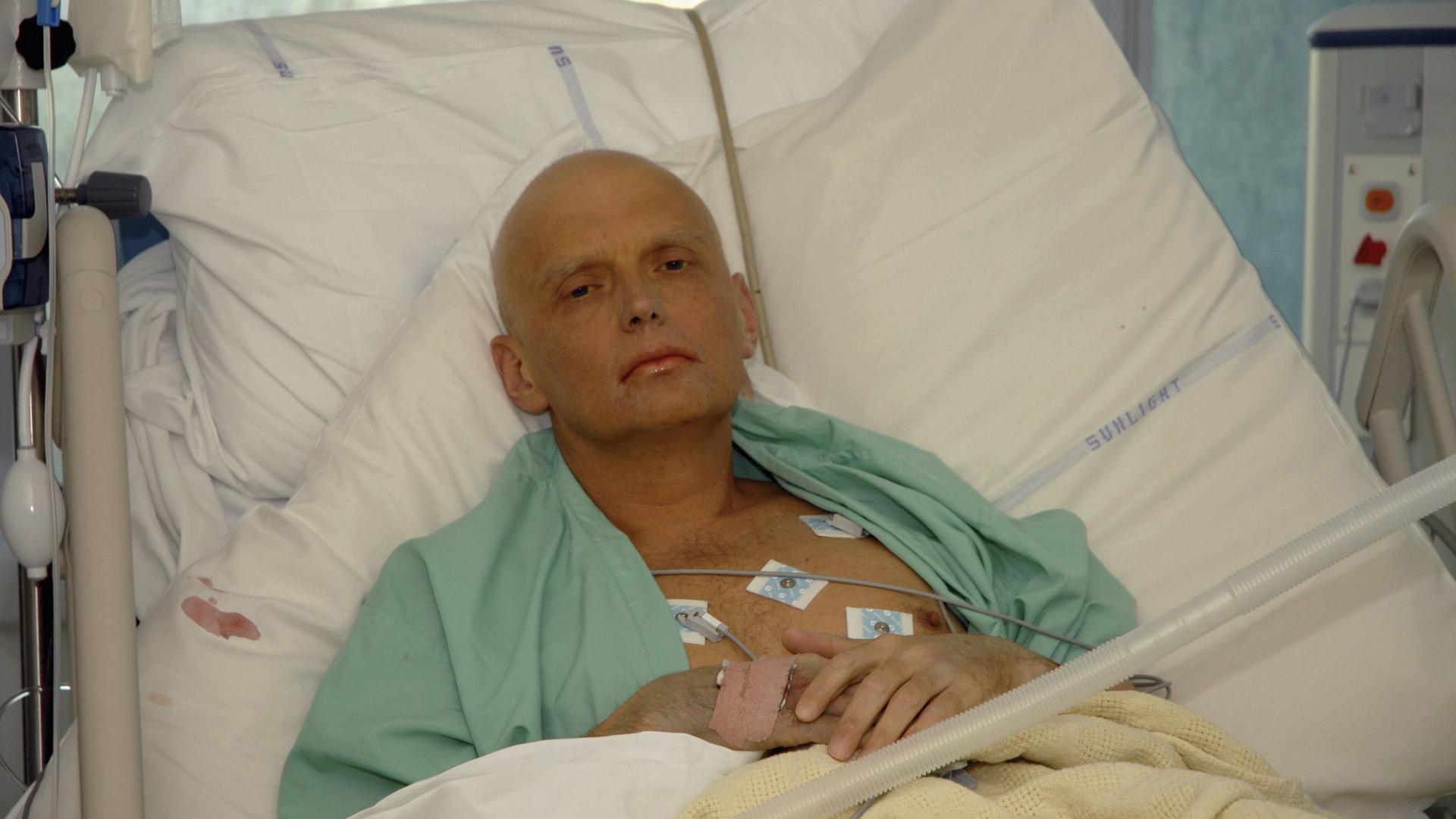Alexander Litvinenko in the hospital shortly before his death in 2006.
A retired British judge, Robert Owen, issued a report on Thursday that included an extraordinary conclusion. It said Russian president, Vladimir Putin, "probably approved" a murder committed in London nine years ago.
The report is the culmination of 12 months of public and private hearings in London as part of an official inquiry.
The victim was exiled Russian dissident Alexander Litvinenko. He died after being mysteriously poisoned with a radioactive substance, Polonium-210. It took 22 agonizing days before the poison took his life.
The inquiry concluded that he was poisoned by two Russian men, Andrei Lugovoi and Dmitri Kovtun. They brought the Polonium-210 with them, and left a trail of radioactive evidence everywhere they went. They met with Litvinenko at a hotel and poured it into a pot of tea that he was drinking.
“The report makes clear these two men were not acting on their own initiative,” says Oliver Bullough. Bullough is a journalist and writer who lived in Russia for years, and sat through the public hearings.
“They would not have been able to get hold of such a rare chemical on their own,” he says. “They’d clearly been ordered to do this.”
“The report was not quite so categorical,” adds Bullough, “about who exactly ordered them to do it. But it says it is probable that President Putin stood behind this murder. That this was essentially a political assassination of one of Putin’s opponents.”
Bullough was surprised by Owen’s assertiveness, because only circumstantial evidence linking Putin to the crime was presented in the public hearings. Bullough says it’s likely stronger evidence was provided by intelligence agencies in closed hearings. “It’s likely that’s what’s pushed him from saying it was ‘possible’ to saying it was ‘probable’ that Putin was involved.”
Russia has rejected the report and calls it a provocation.
The story you just read is accessible and free to all because thousands of listeners and readers contribute to our nonprofit newsroom. We go deep to bring you the human-centered international reporting that you know you can trust. To do this work and to do it well, we rely on the support of our listeners. If you appreciated our coverage this year, if there was a story that made you pause or a song that moved you, would you consider making a gift to sustain our work through 2024 and beyond?
